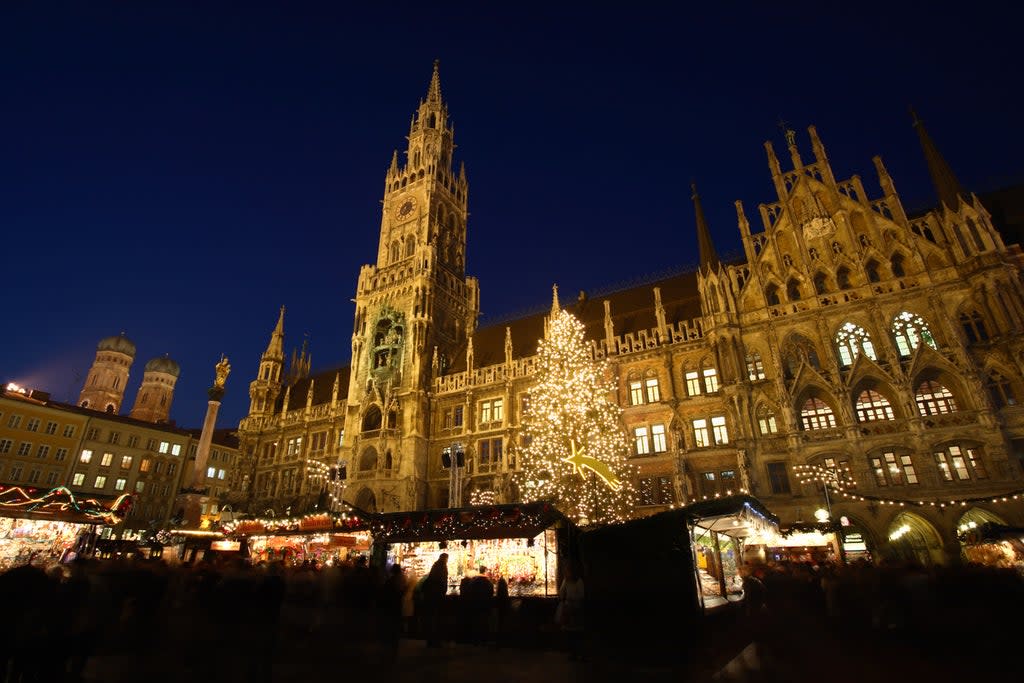Munich’s Christmas market cancelled for 2021 amid Covid spike

Munich authorities have announced that the city’s historic Christmas market, the Christkindlmarkt, will be cancelled for the second year in a row due to the country’s surge in Covid cases.
Lord Mayor Dieter Reiter called it “bitter news”, saying: “the extreme situation in our hospitals and exponentially rising infection rates leave me no other choice."
The market had been due to open on 22 November and run until 24 December.
It is one of the country’s oldest markets of its kind, first recorded as far back as 1310.
The statement said Munich authorities had taken the decision “following consultations with the crisis team for extraordinary events”.
Germany’s Covid cases are currently peaking, with an average of 44,864 reported each day.
“Anything else would cause an unjustifiable increase in the risk of infection and would send the wrong signal – especially to all the employees in our hospitals, who are working at their limits,” explained Reiter.
“It is now a matter of avoiding large gatherings of people as far as possible."
In mid-October, Berlin’s Charlottenburg Palace Christmas market made the decision to cancel for the 2021/22 season, though many other festive markets in German cities are still listed as going ahead.
The country has the third lowest vaccination rate in Europe, with just 67 per cent of the population fully jabbed at this stage, and has suffered from widespread cases of the Delta variant.
Yesterday, chancellor Angela Merkel described the spike in cases as “dramatic”, saying: “The fourth wave is hitting our country with full force.”
Several countries in Europe - including the Netherlands and Slovakia - are seeing an all-time high in average daily case rates, with Austria imposing a full national lockdown from next Monday.
Read More
Germany’s Christmas markets face closure amid Covid spike
Rip-off websites charging up to £72 for free travel forms
Austria lockdown: What do the new rules mean for travellers?

 Yahoo News
Yahoo News 
